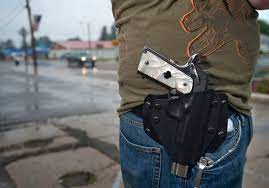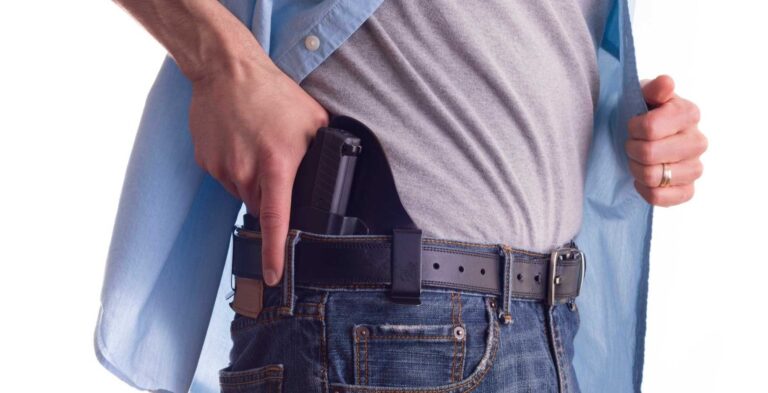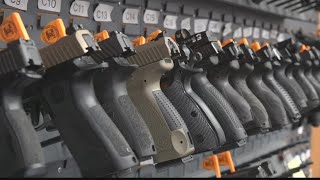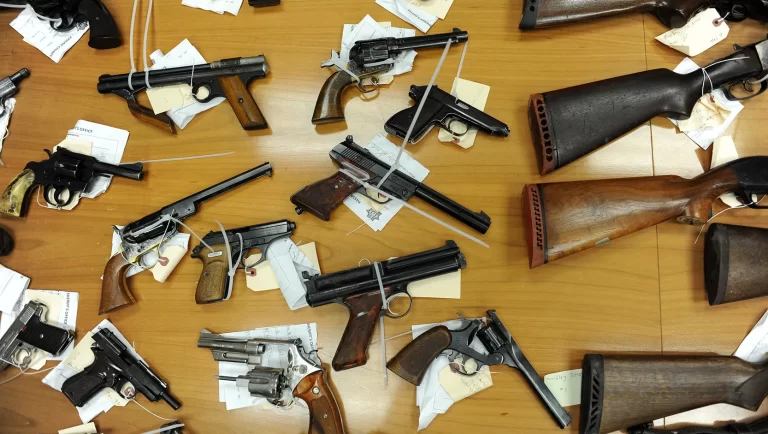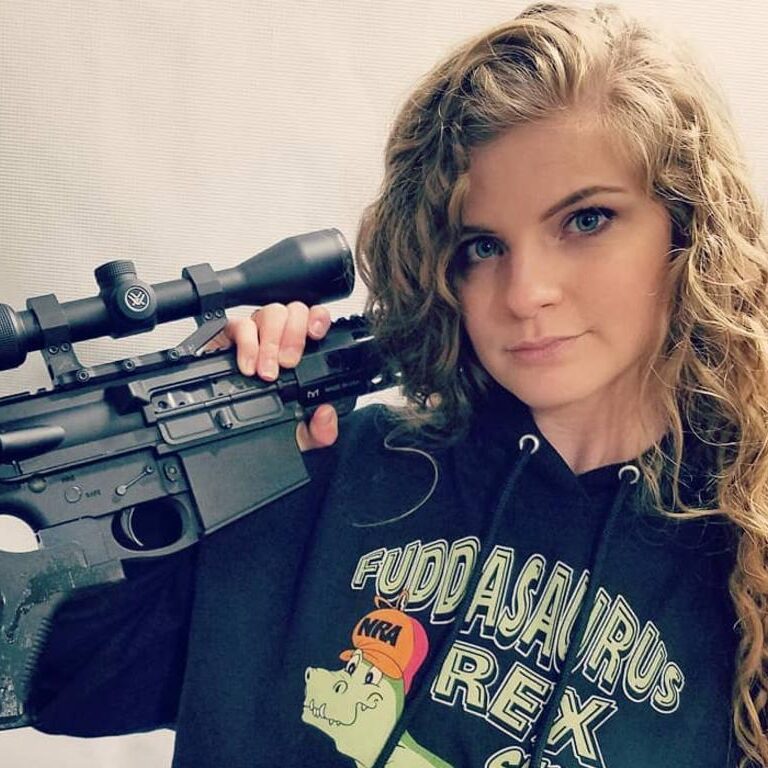New Jersey Open Carry: Laws, Requirements, Application & Online Training
The state of New Jersey has long been known for its strict and comprehensive gun laws that individuals must adhere to before utilizing firearms within its borders. From permit requirements to restrictions on certain types of firearms and locations, New Jersey’s regulations are designed to ensure public safety. In this article, we’ll delve into the intricacies of New Jersey’s gun laws, particularly focusing on the rules surrounding open carry.
Introduction
New Jersey, nestled in the northeastern United States, has set the bar high when it comes to regulating firearms. As a state that prioritizes public safety, it is crucial for residents and visitors alike to be well-versed in the laws governing firearm possession, especially open carry. Whether you’re a seasoned firearm enthusiast or someone new to the world of guns, understanding these regulations is paramount.
New Jersey Gun Laws Overview
Before delving into the specifics of open carry, let’s first gain a comprehensive understanding of New Jersey’s broader gun laws. The possession of firearms within the state requires individuals to obtain various permits and adhere to specific regulations. These laws aim to control the acquisition, ownership, and usage of firearms, with a strong emphasis on responsible and safe handling.
The application process for firearm permits is overseen by the local police department, with the state implementing a May-issue policy. Moreover, individuals seeking to purchase firearms must acquire purchase permits, which also involve mandatory criminal record background checks. Additionally, the possession of a firearm identification card is compulsory.
Understanding Open Carry in New Jersey
Open carry refers to the practice of openly carrying a firearm in public, visible to others. While New Jersey does allow open carry, there are stringent requirements and restrictions that individuals must adhere to.
Eligibility and Restrictions
To engage in open carry within the state, you must be at least twenty-one years old and devoid of any state or federal restrictions that would prohibit firearm usage. This underscores the importance of ensuring a clean record and meeting all legal prerequisites before attempting to open carry.
Open Carry License Requirements
New Jersey’s open carry regulations dictate that individuals must obtain a license to open carry. This license is crucial and serves as official authorization to openly carry a firearm. For individuals interested in using firearms such as machine guns or automatic weapons, an additional license granted by a judge is imperative.
Prohibited Ammunition Types
It’s worth noting that New Jersey prohibits the use of hollow-point and armor-piercing ammunition. These restrictions contribute to the state’s focus on minimizing potential harm and enhancing public safety.
Quick View of Open Carry Laws
To provide a quick overview of open carry regulations in New Jersey, let’s examine some key aspects:
| Law/Policy | Long Guns | Handguns | Comments |
|---|---|---|---|
| State permit for open carry | No | Yes | A permit is necessary to carry a handgun openly. |
| Firearm registrations for open carry | No | No | Firearm registration is not required for open carry, except for specific firearms. |
| Assault weapon for open carry | Yes | No | Assault weapons may be used for open carry with proper authorization. |
| Magazine limit | Yes | Yes | Firearms must not possess magazines with more than ten rounds. |
| License for firearm ownership | Not required | Not required | No license required for firearm ownership. Handgun registration is necessary. |
| Red flag law | Yes | Yes | Provisions for intervention based on risk assessment. |
| Castle doctrine law | Yes | Yes | Stand your ground policy in dwelling places. |
| Background check for private dealers | Yes | Yes | Compulsory background checks for firearm purchases. |
| Preemption | Yes | Yes | Federal regulations apply to local areas. |
| Concealed carry permit | Yes | Yes | Permit required for concealed carry. |
| Concealed carry in personal vehicle | Yes | Yes | Concealed carry allowed in personal vehicles. |
| Open carry in schools | No | No | Concealed carry is allowed in personal vehicles. |
Permitted Locations
New Jersey law allows open carry in the following locations:
- Restaurants and bars (unless prohibited by signs)
- Personal vehicles (with a valid open carry license)
- Roadside areas
- Personal property (owned, leased, or rented)
- Places of worship (unless management prohibits)
Restricted Areas
On the other hand, open carry is prohibited in the following locations:
- Schools, colleges, and universities
- Casinos with a state license
- State parks
- Places prohibited by state and federal laws
Age Requirement for Open Carry
To open carry, you must be at least twenty-one years old.
Age for Concealed Carry
The minimum age for concealed carry is also twenty-one.
Applying for a New Jersey Permit
Individuals must be at least twenty-one years old to apply for a New Jersey permit to carry.
Non-Residents and New Jersey Permits
Non-residents can obtain a New Jersey carry permit if they meet eligibility criteria.
Constitutional Carry in New Jersey
No, New Jersey does not permit constitutional carry.
Open Carry of Knives
Open carry of knives is permitted, as long as they are not possessed for illegal purposes.
Concealed Carry of Knives
Yes, concealed carry of knives is allowed, except in restricted areas like schools.
Restrictions on Firearms Possession
Machine guns, semi-automatic firearms, and similar weapons are illegal without proper licensing.
Purchase Permit Necessity
A purchase permit is required to buy firearms in New Jersey.
Mandatory Background Checks
Yes, a criminal record background check is mandatory for firearm purchases.
Validity of New Jersey Purchase Permit
The purchase permit is valid for two years and requires renewal.
Duty to Inform Law Enforcement
No, New Jersey does not require individuals to notify law enforcement about firearm possession.
Castle Doctrine in New Jersey
Yes, New Jersey follows a castle doctrine in dwelling places.
Use of Deadly Force
New Jersey permits the use of deadly force for self-defense against unlawful attacks.
Firearm Training Requirements
Applicants must complete firearm training and demonstrate familiarity before obtaining a permit.
Firearms Registration
Handguns must be registered in New Jersey, while other firearms may be registered voluntarily.
Age to Purchase Firearms
The minimum age to purchase firearms in New Jersey is twenty-one.
In-Depth Look at New Jersey’s Firearm Laws
To gain a more profound understanding of New Jersey’s firearm laws, let’s explore several specific areas.
Magazine Limits
New Jersey restricts firearm magazines to a maximum of ten rounds and prohibits large-capacity magazines. Some exceptions apply, such as for members of the United States Armed Forces and law enforcement officers.
Ammunition Restrictions
Hollow-point and armor-piercing ammunition are prohibited, except for certain circumstances, such as usage by members of gun clubs or for hunting activities.
Preemption Gun Laws
New Jersey’s gun laws preempt local regulations, with the state government having the authority to regulate firearms consistently across municipalities and districts.
Brandishing Firearms
Intentionally causing a public disturbance or engaging in reckless behavior that can lead to violence is considered a disorderly offense. However, the use of firearms for self-defense is exempt from this law.
Red Flag Law
Under New Jersey’s red flag law, family members or law enforcement officers can petition for a protection or restriction order against someone considered a threat with firearms.
Open Carry While Hunting
Open carry while hunting is permitted, except during archery season.
Firearm Harassment Laws
New Jersey has laws in place to prevent harassment related to firearms, including prohibitions against impeding hunters and disturbing hunting properties.
Additional Resources for Understanding New Jersey Gun Laws
For individuals seeking more information about New Jersey’s firearm laws, the following resources may prove helpful:
- New Jersey Gun Laws
- New Jersey Concealed Carry Laws
- New Jersey Open Carry Laws
Conclusion
New Jersey’s gun laws are stringent, and open carry comes with various regulations and responsibilities. Understanding and adhering to these laws is essential for ensuring public safety and responsible firearm usage. Whether you’re a resident or a visitor, being well-informed about the state’s gun laws can help you navigate the complexities of firearm ownership and usage in New Jersey.
FAQs;
Q1. Do I Need a Permit to Open Carry?
Yes, a permit to carry is mandatory for open carry in New Jersey.
Q2. Separate Permit for Concealed and Open Carry?
No, the same permit covers both concealed and open carry.
Q3.Where Can You Open Carry in New Jersey?
Understanding where you can and cannot open carry is essential to avoid legal complications. Let’s explore the areas where open carry is permitted as well as those where it is prohibited.
Q4. Which states have the strictest gun laws?
States generally considered to have the strictest gun laws include California, New Jersey, Massachusetts, Hawaii, New York, Maryland, Connecticut, and Illinois. Restrictions can cover permitting, sales, ownership, type of firearms, capacity, carry laws, storage, and transportation requirements that exceed federal regulations.
Q5. How does the Supreme Court ruling affect New Jersey gun laws?
The 2022 Supreme Court ruling striking down certain concealed carry restrictions reinforced New Jersey’s duty to issue permits to carry firearms, overturning the prior “justifiable need” requirement. New Jersey was already working to revise laws to be less limiting following the ruling.
Q6. What are the rules for owning a gun in New Jersey?
New Jersey has very stringent rules for legal firearm ownership including permits, universal background checks, restrictions on firearm types allowed, magazine capacity limits, licenses required for each gun owned, mandatory safety training courses, safe storage laws, restrictions on ammunition quantity, and type purchased, and other regulations gun owners must follow.
